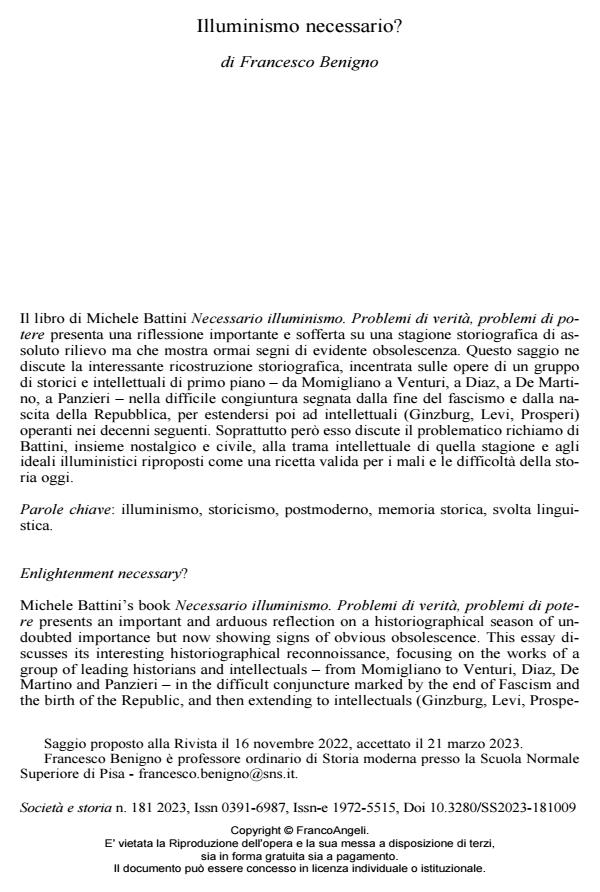Enlightenment necessary?
Journal title SOCIETÀ E STORIA
Author/s Francesco Benigno
Publishing Year 2023 Issue 2023/181
Language Italian Pages 11 P. 596-606 File size 160 KB
DOI 10.3280/SS2023-181009
DOI is like a bar code for intellectual property: to have more infomation
click here
Below, you can see the article first page
If you want to buy this article in PDF format, you can do it, following the instructions to buy download credits

FrancoAngeli is member of Publishers International Linking Association, Inc (PILA), a not-for-profit association which run the CrossRef service enabling links to and from online scholarly content.
Michele Battini’s book Necessario illuminismo. Problemi di verità, problemi di pote-re presents an important and arduous reflection on a historiographical season of undoubted importance but now showing signs of obvious obsolescence. This essay di- scusses its interesting historiographical reconnoissance, focusing on the works of a group of leading historians and intellectuals - from Momigliano to Venturi, Diaz, De Martino and Panzieri - in the difficult conjuncture marked by the end of Fascism and the birth of the Republic, and then extending to intellectuals (Ginzburg, Levi, Prosperi) working in the following decades. Above all, however, it discusses Battini’s problematic recourse, at once nostalgic and civil, to the intellectual texture of that season and to the Enlightenment ideals reproposed as a valid recipe for the ills and difficulties of history today.
Keywords: Enlightenment, historicism, postmodernism, historical memory, linguistic turn.
Francesco Benigno, Illuminismo necessario? in "SOCIETÀ E STORIA " 181/2023, pp 596-606, DOI: 10.3280/SS2023-181009